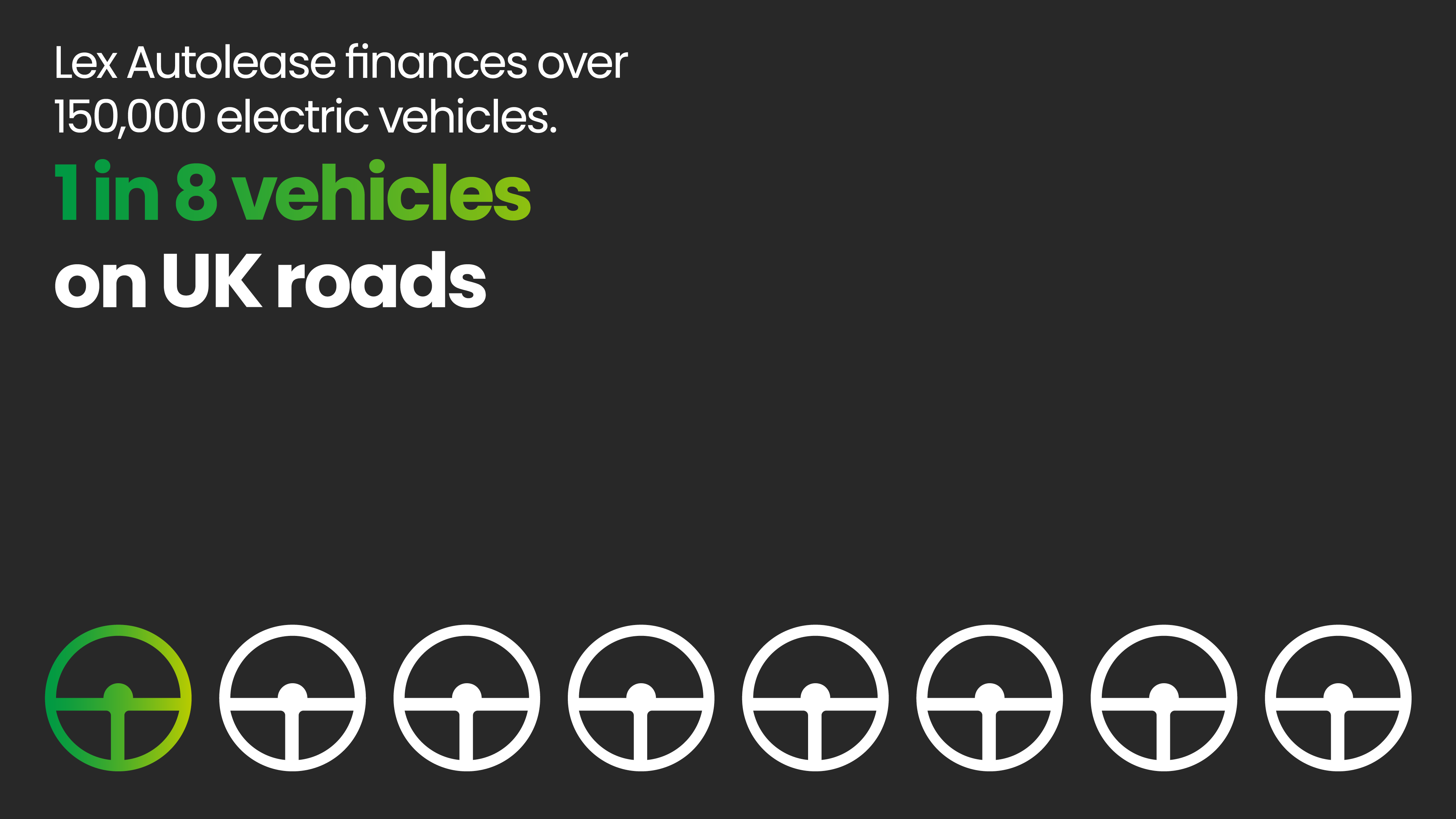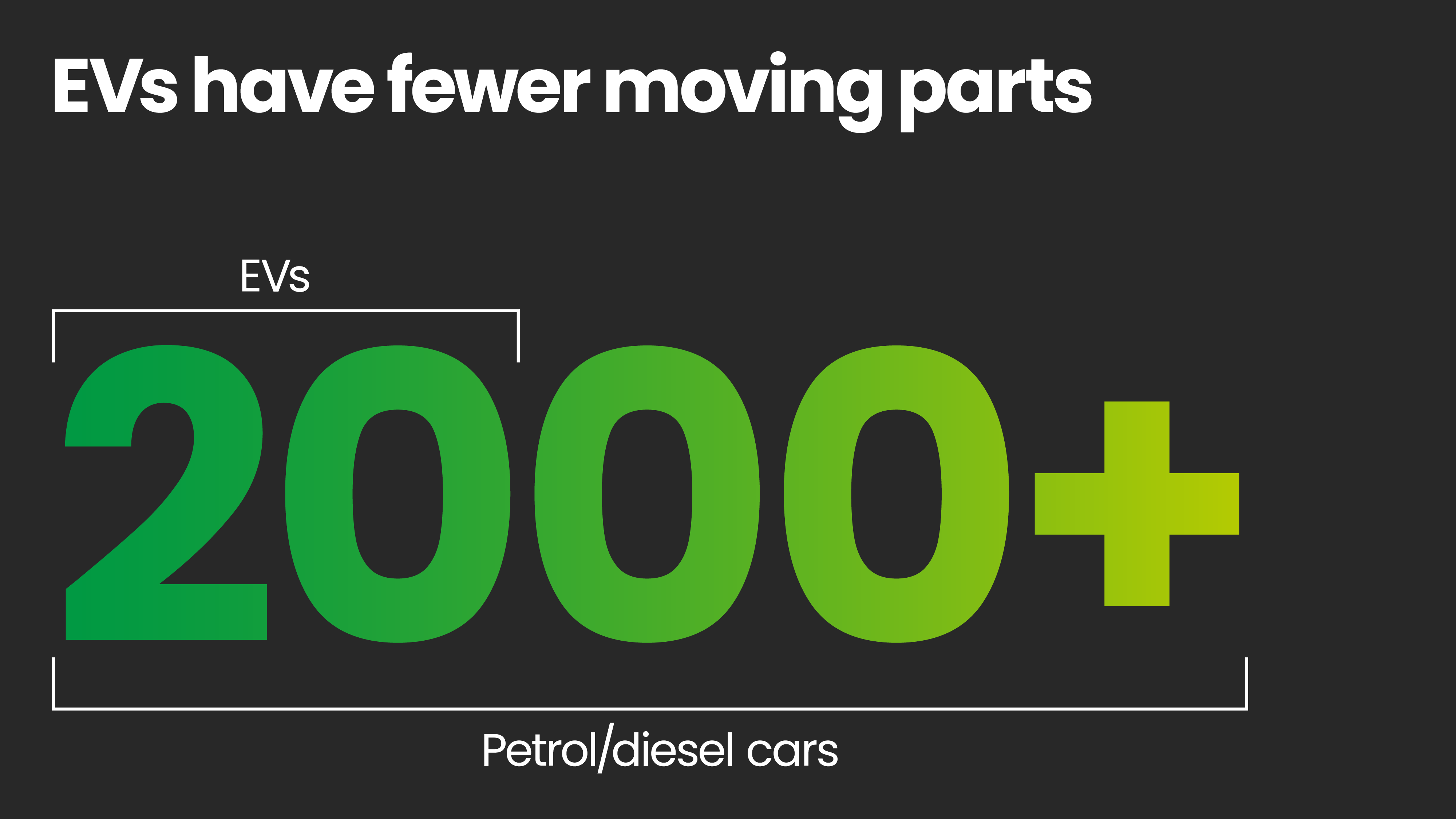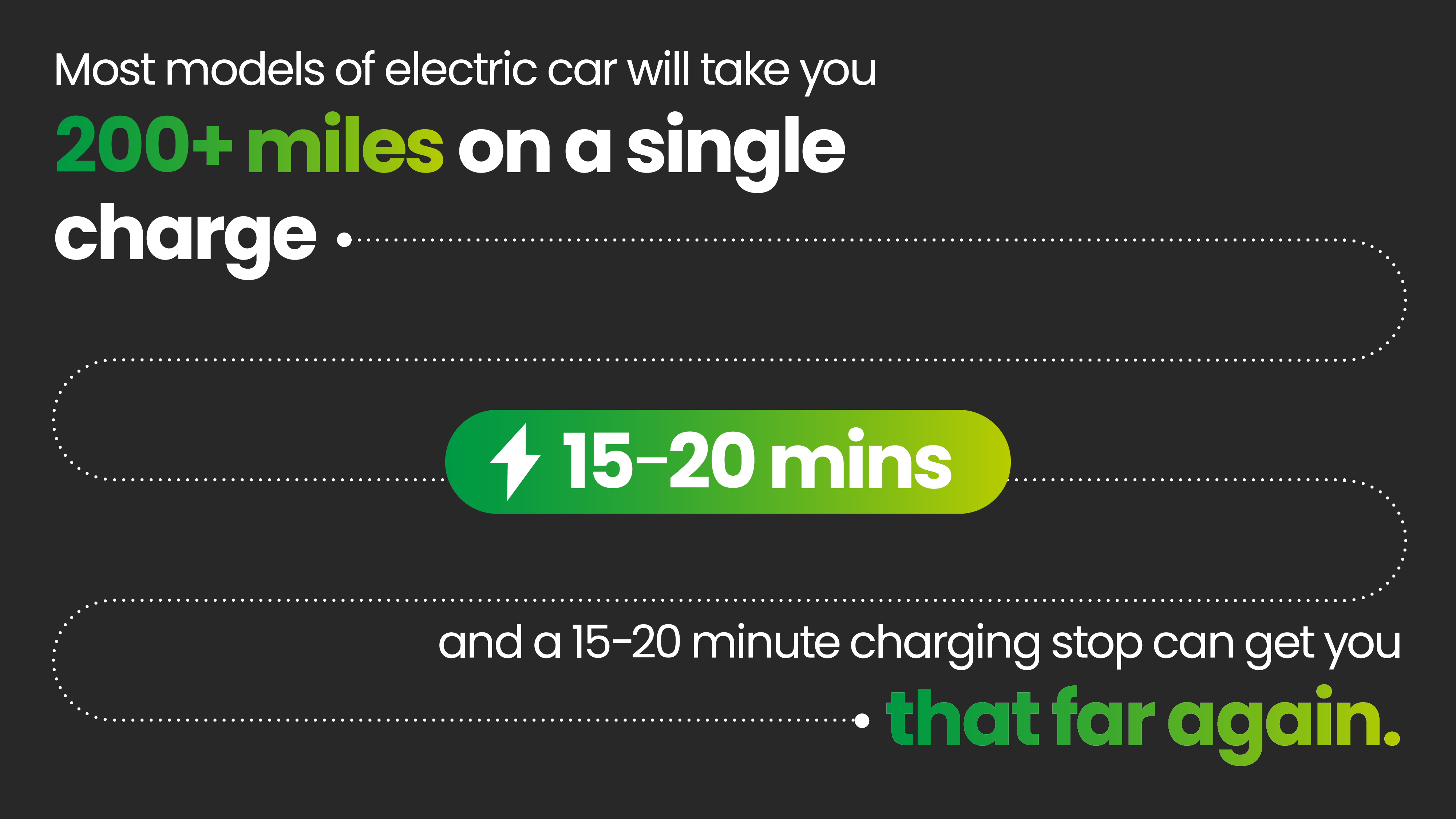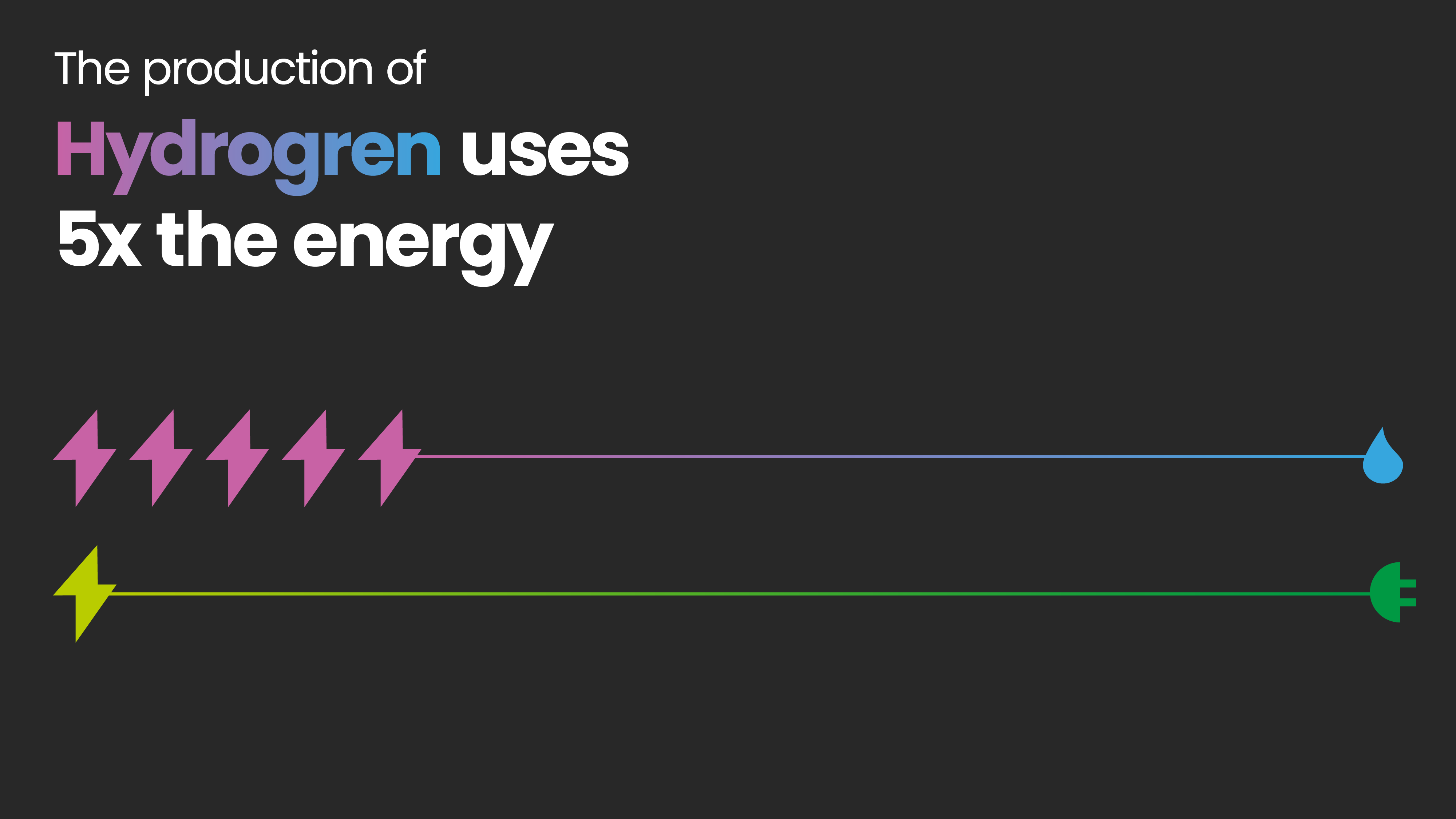Our purpose and strategy
Our purpose is Helping Britain Prosper.

We answer some of the most common questions around Electric Vehicles (EVs) and electric cars.

Electric cars have gone from being a bit of a novelty to an everyday fixture on our roads, with the UK’s very earliest adopters now hitting ten years of electric car ownership. There are well over 100 models of electric car on the market, more than one million are registered on our roads, and the charging infrastructure is growing all the time.
Both as personal transport and company cars, they now make up almost 15% of the market1. Lloyds transport currently finances over 150,000 pure electric cars, and one in every eight electric vehicles registered in the UK.
Most people probably already know someone who drives an electric car, or who’s thinking about buying or leasing one. Or they might be thinking of it themselves.
But while adoption increases and charging points become ever easier to come by, certain EV myths are displaying some serious sticking power, and the same questions come up again and again: electric car running costs, EV safety, how long the battery will last and more.
This article brings together – and answers – a few of the most common queries drivers currently have around electric cars.

AutoTrader found that the gap between new electric and internal combustion engine (ICE) cars is continuing to close slowly. In 2023, the online marketplace found that the price gap between the base models of a then-new Tesla Model 3 and a petrol BMW 3 Series, which used to be £20,000, had dropped to £950. Tesla have cut their prices and BMW have raised theirs.
In September 2024 there are only nine electric cars available on the new market for less than £30,000 (compared to over 70 petrol and diesel models), however Gartner report that by 2027 production costs could be low enough that electric cars will cost less on average to make than combustion cars.
The second hand market is moving in an encouraging direction as well. Although the number is starting from a low base, used EV sales almost doubled in January 2024. According to AutoTrader’s Road to 2035 report, the price of used electric cars has been dropping for 20 consecutive months (to May 2024). There’s no doubt there are some bargains out there for a private buyer considering a used EV, and cost parity is moving closer all the time.

There are more than 2,000 moving parts in a combustion vehicle, and only 20 or so in an electric car. In a combustion engine, friction affects all those moving parts, and the way the engine is designed and built results in many of the repairs and replacements we’re familiar with. Using an electric car immediately eliminates oil, oil and particulate filters, spark plugs, belts or chains, exhausts and clutches from the whole-life cost equation.
Electric cars do still have some conventional consumable parts: they still need brake pads and discs, for example. But where a vehicle has regenerative braking, much of the energy shed during braking is converted into power to run the car. That means discs and pads are exposed to much less heat and friction than they would be in conventional combustion engine vehicles – so even they last longer, and cost less. On one day of the EV rally the Lloyds Banking Group Tesla used 64 kilowatts of energy, but recaptured 14 kilowatts just through regenerative braking.
So, overall maintenance of an electric car can come in at 43% less than other fuel types, according to BookMyGarage.com data from February 2023. Our own maintenance budget comparisons also show that EVs are circa 30 to 40% cheaper to maintain.
According to 2022 data from British Gas3, fully charging a typical 60kW electric car at home would cost customers £15.10 for a 200-mile range. A full fuel tank, by comparison, would cost £104, which would give an average of 200 to 400-mile range, depending on where the customer is driving and the car’s miles per gallon.
All EV’s manufacturers like Tesla provide warranties for the batteries, typically around 8 years, or 100,000 miles. This means that if the battery performance drops below 70% the manufacturer must repair or replace the battery to provide at least 70% of original battery performance.
And in terms of the battery’s overall lifetime, there’s consensus across the industry now that EV batteries will outlive the chassis of the cars they power.
Currently, insuring an electric car is more expensive than insuring a combustion engine vehicle. Auto Express found in 2023 that EVs tend to cost 10-20% more to insure than combustion equivalents. Partly, this reflects their higher value in the market – but that’s not all there is to it. A lack of EV repair specialists, differences in overall repairability and more expensive parts, are all contributing to higher premiums for electric car insurance compared to other fuel types. But as always with vehicle insurance it is well worth shopping around for EV friendly rates.
At the moment, electric car drivers don’t have to pay road tax (though they do still need to be registered). This is changing in April 20252, when electric cars will be subject to a standard rate of Vehicle Excise Duty (VED) which is currently £190 a year. Some EV drivers could also find themselves subject to the ‘Expensive Car Supplement’, which applies to cars with a list price exceeding £40,000 for five years. This is currently £410, and could mean that drivers with an expensive electric car pay £600 a year in road tax.

In the early days of electric cars, a range of 70 miles was the best you could expect. Now, most models will take you 200+ miles on a single charge. A 15-20 minute charging stop can get you nearly that far again, and charging infrastructure is growing all the time.
Temperature affects vehicles of all fuel types. Every vehicle has an optimum efficient operating temperature, and in the winter it takes longer to get hardware of any kind up to that temperature.
In 2020, the best performing EV only lost about 16% of its range in temperatures of 0-2 degrees Celsius (as tested by the Norwegian Automobile Association). But now, the latest generation of EVs have a heat pump to help the battery reach its ideal temperature faster.
The US Department of Energy found that low temperatures reduce the range of a petrol car by about 15%. It’s likely that the addition of heat pumps to electric cars has levelled the playing field, and even helped electric cars pull ahead of petrol and diesel counterparts when it comes to low temperature efficiency.

The headline is that EVs are far less likely to catch fire than internal combustion vehicles. We sadly see around 100,000 car fires every year in the UK. In 2022-2023, only 239 (that’s 0.24%) involved electric vehicles.4
Data from the Swedish Contingencies Agency, Thatcham Research (a vehicle tester for insurers) and the American National Transportation Safety Board all point to the same low rates compared to petrol vehicles.

It’s highly unlikely that hydrogen fuel will be a more effective replacement for ICE cars than electric vehicles. To start with, there’s just not that much demand; there are only two models of hydrogen fuel cell cars in the UK, with around 100 vehicles registered on our roads. Worldwide, there’s about 27 million electric vehicles, compared to about 72,000 hydrogen cars.
The infrastructure needed for hydrogen cars is also pretty complicated. And it’s shrinking. There are 11 filling stations in the UK (only four of which are open to the public), and only 265 across Europe. Shell has closed its three UK filling stations, and all seven in California.
Compared with the fact that anyone can charge their EV from home overnight, or drive to the local supermarket and charge their car while they shop, the dearth of hydrogen fuel stations is definitely a drawback.
This lack is because the infrastructure is hard to do well. It requires a lot of space, and it’s far more expensive to create the fuel (the production of hydrogen fuel uses five times more electricity than just putting it in a battery car) and, because it needs to be kept at very low temperatures, it’s more complicated (and expensive) to store and transport.
There is a space for hydrogen technology, and it’ll be for heavier vehicles. When you think about the logistics of heavy good vehicles, busses, trains or marine transport, they are probably going to be better served by hydrogen technology. And though we talk a lot about range anxiety, it’s still quite convenient to be able to charge a vehicle at home. It’s unlikely that we’ll be filling our cars with hydrogen at home as it’s pretty dangerous. So hydrogen becoming a reality for passenger vehicles is very unlikely.

Managing Director, Lex Autolease
Nick joined Lloyds Banking Group in April 2006 as part of the Retail Division of HBOS. Here Nick led the change agenda across all products areas through unprecedented levels of change. His role spanned merger process to form Lloyds Banking Group; leading the integration of the two heritages mortgage businesses; supporting the divestments of TSB and Sainsbury's; extensive regulation changes and leading the growth change agenda for Retail following the first Group Strategic Review.
Since then, Nick evolved as a technology leader and took on a number of roles such as transforming the Group’s Digital business into a world class eCommerce capability (2014 to 2017), leading the technology transformation for our Commercial Banking and Business division (2017-2019), and held the roles of Deputy Group Transformation Director (Q4 2019 to Q1 2021) and Group Director, Transformation (Q1 2021 to October 2022), before joining the Transport business in October 2022.
Nick was the Group Regional Ambassador for the North of England during 2014-2017 and since 2014 has continued to play a pivotal role in driving the digital skills and inclusion agenda, including working on policy in partnership with the Department for Digital Culture Media Sport.
In 2018, Nick launched the Lloyds Bank Academy and has been crucial to the development of the Lloyds Bank Consumer Digital Index and Business Digital Index - the UK's largest leading measures of digital, financial and business skills. He is also a Non-Executive Director of Mersey Care NHS Trust, providing specialist inpatient and community mental health services across the North West of England.
Nick lives in Cheshire with his wife and two boys.

Our Future of Transport Index shows that electric vehicles remain key to the UK’s transition to a net zero economy, but there are still challenges to overcome.

The UK housing market accounts for 16% of the UK’s carbon output – we need five crucial actions from the Government to help make housing more sustainable.

Looking ahead to what’s coming up for the electric vehicle market this year, an influx of new drivers will mean the industry will need to do more to educate people on how to choose and use them.
Popular topics you might be interested in